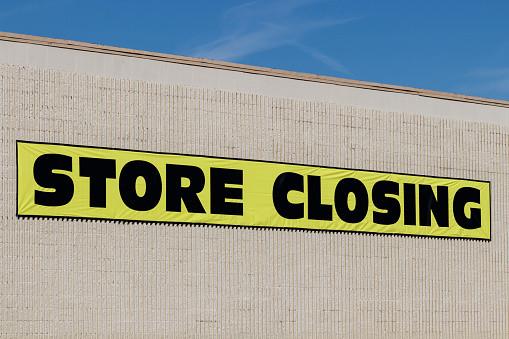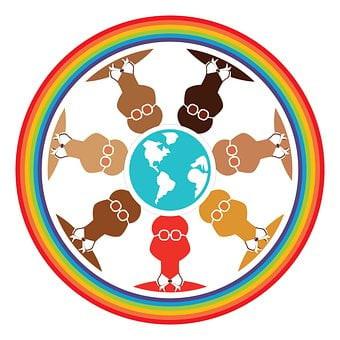494. Why Do Most Ideas Fail to Scale?
Curated from: Freakonomics Radio
Ideas, facts & insights covering these topics:
9 ideas
·1.64K reads
8
Explore the World's Best Ideas
Join today and uncover 100+ curated journeys from 50+ topics. Unlock access to our mobile app with extensive features.
Most of us think that scalable ideas have some “silver bullet” feature, some quality that bestows a “can’t miss” appeal. That kind of thinking is fundamentally wrong. There is no single quality that distinguishes ideas that have the potential to succeed at scale from those that don’t.
JOHN LIST
11
300 reads
The world of scaling needs a “common sense checklist"
Most scaling failures are complicated. Identifying a list of potential problems before you scale up can improve the odds of success:
- Use incentives that can scale. This applies to creating healthcare or education policy, trying to grow your startup, or just helping your community get along better.
- Make all of your decisions on the margin. Don’t be a prisoner to looking at averages, as data is always presented in averages. Instead, a marginal way is to pick the low-hanging fruit right away, then scale over marginal people, not over the million people who have already consumed it in the past.
11
224 reads
Example of scaling problem
Kmart used to be a highly successful discount department-store chain with over 2,300 locations in the U.S. Their famous in-store promotion was the BlueLight Special, where a great deal would be announced at unknown times. This helped them clear out unwanted stock and gave shoppers an adrenaline rush that made them spend more money.
Kmart headquarters tried to scale it up by deciding where, when, and what product would be placed on the BlueLight Special across all stores. But customers in one store had different needs than customers in another store. Centralising the special ruined the brand.
10
186 reads
Creating evidence-based policy vs. producing policy-based evidence
Moving from creating evidence-based policy to one of producing policy-based evidence is a call to researchers, policymakers and business people to consider the following: If scaling an idea, what constraints should be taken into account when doing the original research?
For example, in the Chicago Heights Early Childhood program, researchers created a pre-school in a low-income Chicago neighbourhood to see what would produce the biggest educational gains. They hired the best teachers for their pilot program, but at scale, they’d have to hire 30,000 less-good teachers to stay within the budget.
10
176 reads
Voltage drop is shockingly common
The voltage effect describes what happens when you move from the small to the large. Most ideas experience voltage drops, when a seemingly great idea loses power as it is scaled.
How to fail at scaling
- You scale a program that was never tested.
- Humans don’t scale. Any time there is a human at the centre of the program, it will fail.
- Experts in their field assume that everyone else thinks hyper-rationally as they do, but people seldom think clearly in an area that is unfamiliar to them.
12
165 reads
Scaling considerations
When a small startup firm or institution has some success and wants to get bigger, they should consider the following:
- Be as diverse as you possibly can, as early as you can.
- Types of diversity are observable characteristics, like gender and race and the socioeconomic status of how you were raised.
This will allow for a much deeper and more diverse set of ideas and solutions to problems and, consequently, a more productive organisation.
12
149 reads
The best and worst examples of the voltage effect
The best example of a product that scaled unbelievably well is Jonas Salk and the polio vaccination. He had an innovation, tested it out on his own kids, and then he ramped it up to test all kinds of different kids. It worked well and then leveraged the healthcare system.
The worst example is the Drug Abuse Resistance Education (D.A.R.E) program of Nancy Reagan. Police officers would go into school classrooms and teach kids about the dangers of drugs. The drug use didn’t fall and, in some cases, actually increased. The program was ineffective because it never had voltage to start with.
11
145 reads
False positives are a common cause of scaling failures
False positives arise for many reasons such as bad measurement, wishful thinking or simply because the world is messy and it can be difficult to establish cause and effect.
One reason why we don’t make as big an impact as we should is:
- We’re not really sure that this is going to ever scale.
- We are unsure that this is the correct result.
Results should be tested with, for example, Benford’s Law, to see whether the data have been fabricated.
11
147 reads
The upside of quitting
The secret to high-voltage scaling is understanding when to quit. People generally don’t quit soon enough.
Usually, when someone wants to quit, it is because something went wrong. But, you should think more about the opportunity I’m giving up if I stick with it. If the opportunity changes for the better, I should quit more often.
If you’re considering quitting, force yourself to compare your performance with your peer group. Consider if you have a comparative advantage in this particular activity.
10
152 reads
IDEAS CURATED BY
CURATOR'S NOTE
Economist John List is trying to start a scaling revolution. He discusses avoiding false positives, the cause of a given success and optimal quitting.
“
Bailey Caldwell's ideas are part of this journey:
Learn more about personaldevelopment with this collection
Understanding the importance of decision-making
Identifying biases that affect decision-making
Analyzing the potential outcomes of a decision
Related collections
Similar ideas
11 ideas
The 4-Hour Workweek
Timothy Ferriss
2 ideas
Educated
Tara Westover
4 ideas
What Makes People Successful?
Ali Abdaal
Read & Learn
20x Faster
without
deepstash
with
deepstash
with
deepstash
Personalized microlearning
—
100+ Learning Journeys
—
Access to 200,000+ ideas
—
Access to the mobile app
—
Unlimited idea saving
—
—
Unlimited history
—
—
Unlimited listening to ideas
—
—
Downloading & offline access
—
—
Supercharge your mind with one idea per day
Enter your email and spend 1 minute every day to learn something new.
I agree to receive email updates





